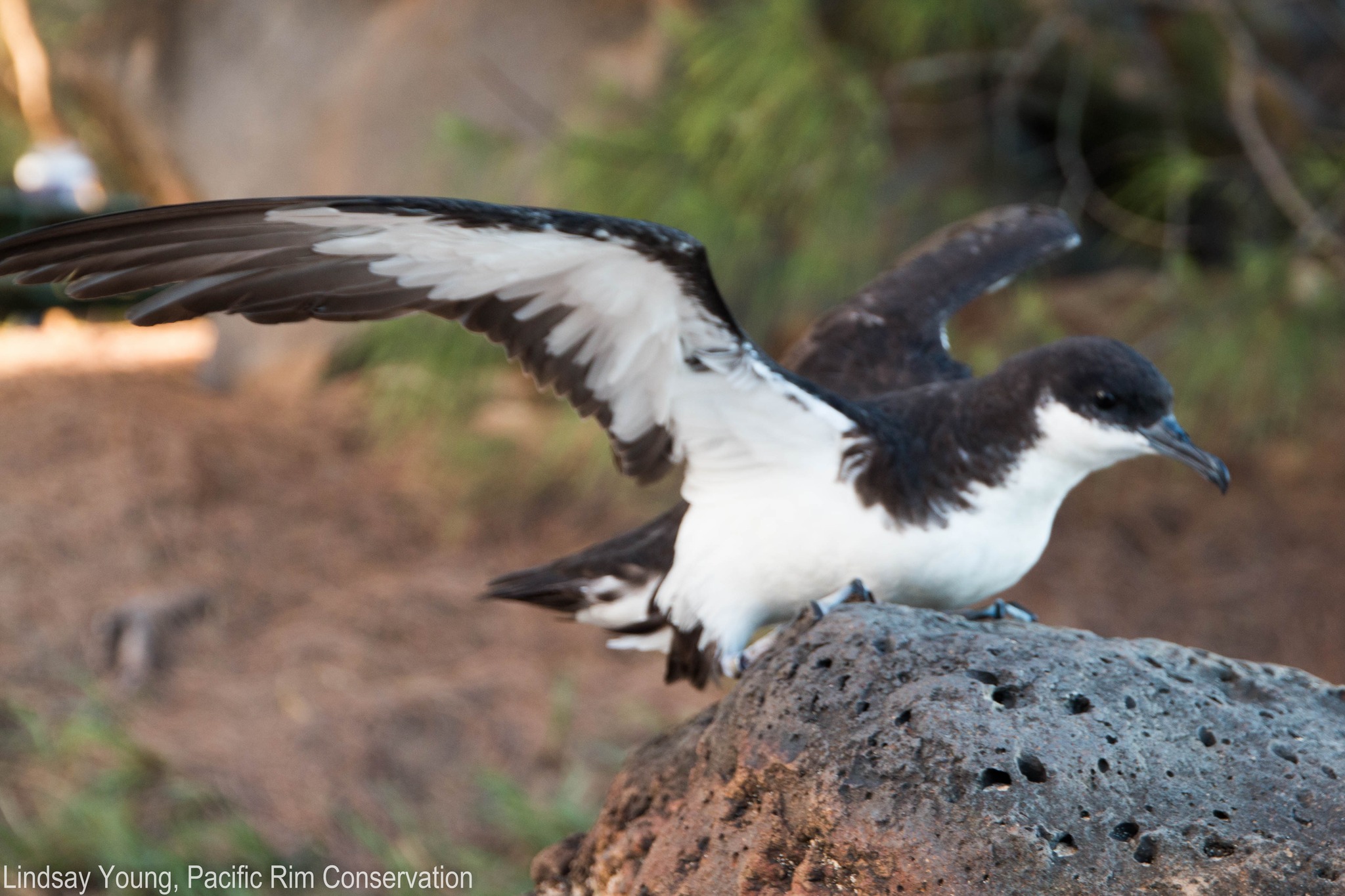
Newell’s Shearwater, photograph by Lindsay Young
Lindsay Young (Pacific Rim Conservation, Honolulu, Hawaii, USA) and colleagues have published open access in the journal Frontiers in Conservation Science on creating a safe breeding space for two of Hawaii’s threatened procellariiform seabirds.
The paper’s abstract follows:
“Newell’s Shearwater (Puffinus auricularis newelli; NESH) and Hawaiian Petrel (Pterodroma sandwichensis; HAPE) are listed under the U.S. Endangered Species Act and have declined by 94% and 78%, respectively, since 1993 due to habitat degradation, predation by introduced predators, collisions with powerlines and light attraction. Given the challenges in protecting nesting birds in their rugged montane habitats, it has long been desirable to create populations of both species in more accessible locations that offer a higher level of protection. We translocated 110 HAPE and 86 NESH chicks over a six-year period from 2015-2020 to a 2.5-ha predator-free enclosure on Kaua`i, Hawai`i. In addition to invasive plant removal and native plant out-planting, we installed 76 artificial burrows to provide nesting sites. Chicks were tube fed 1-20% of their body weight daily in the form of a slurry comprised of squid, fish, salmon oil, and Pedialyte. All NESH and 96% (N=106) of HAPE survived to fledging. Eight HAPE, including three breeding pairs, and one NESH have returned as adults to the translocation site and HAPE have bred at the site, resulting in the first predator-free breeding colony of this species.”

The predator-proof fence erected as part of the Nihoku Ecosystem Restoration Project on the island of Kauai to create a safe breeding space for translocated Newell’s Shearwaters and Hawaiian Petrels
Reference:
Young, L.C., Kohley, C.R., VanderWerf, E.A., Fowlke, L., Casillas, D., Dalton, M., Knight, M., Pesque, A., Dittmar, E.M., Raine, A,F. & Vynne, M. 2023. Successful translocation of Newell’s Shearwaters and Hawaiian Petrels to create a new, predator free breeding colony. Frontiers in Conservation Science 4. doi.org/10.3389/fcosc.2023.1177789.
06 June 2023

 English
English  Français
Français  Español
Español